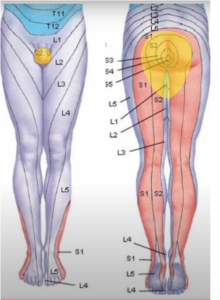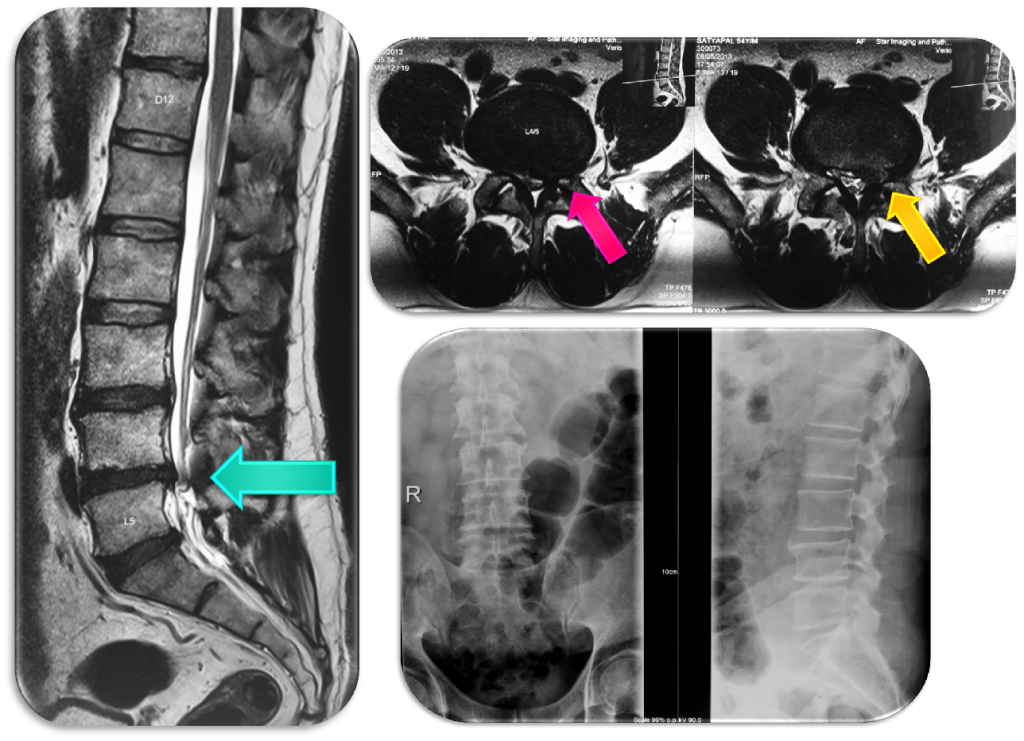


Causes
CES is most commonly caused by:
-
Herniated Disc: A slipped or bulging disc pressing on the nerves.
-
Spinal Injury: Trauma to the lower back.
-
Spinal Tumors: Growths compressing the nerves.
-
Spinal Infections or Abscesses: Swelling or infections in the spine.
-
Lumbar Stenosis: Narrowing of the spinal canal in the lower back.
How is CES Diagnosed?
Dr. Shankar Acharya emphasizes that an accurate and prompt diagnosis is crucial for CES. It involves:
-
Physical Examination: Checking reflexes, strength, and sensation.
-
Imaging Tests: MRI or CT scans to identify nerve compression.
-
Neurological Tests: To evaluate nerve function.



